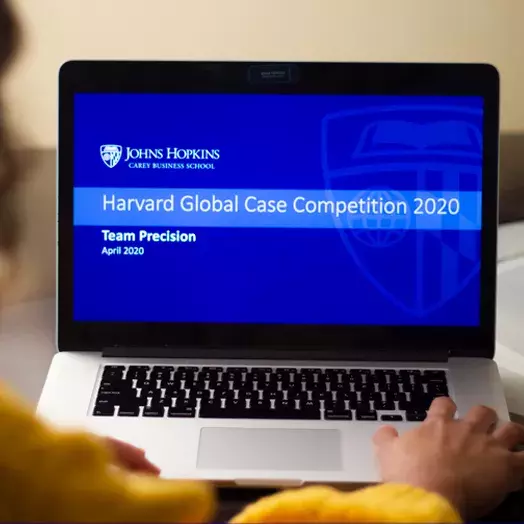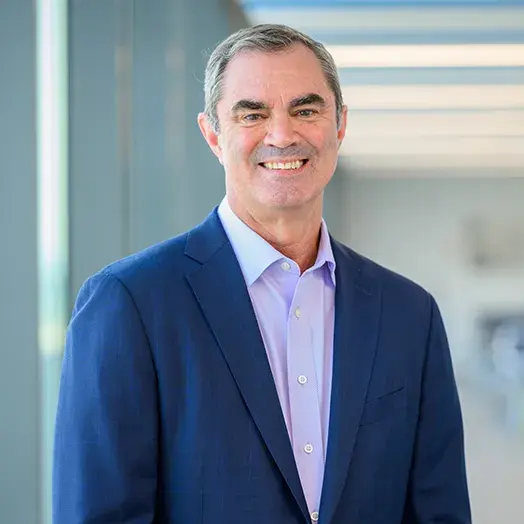
Carey Places at Harvard Case Competition
A team of Johns Hopkins students placed third in Harvard University’s annual Global Case Competition on April 25, 2020. The team, which included four Carey students, team faced off against 160 other teams from around the world.
Each team was given three weeks to present its answer to the question “Should Amazon acquire Netflix?” The financial case gave teams the option to either argue for Amazon to acquire Netflix or to propose alternative investments to help Amazon lead in streaming services.
Selected as a finalist, the Johns Hopkins team presented its solution virtually to a panel of judges from the financial services and consulting industries, including partners and managers at KPMG and McKinsey. Carey’s team went head-to-head against nine other finalists; among them were teams from MIT and London Business School.
"The deep-dive detail of our analyses was probably what made us stand out from the competition. This was the advantage of having a team with diverse backgrounds between finance, research, and data analytics."
Rohan Gupta, MBA
The Johns Hopkins group, named “Team Precision,” consisted of Rohan Gupta (MBA); Malgorzata Latallo (PhD, School of Medicine); Xiaolin Qin (MS Finance); Joseph Tisinger (MBA), and Jie Zhou (MS Finance). The team recommend against acquiring Netflix and instead investing in content creators and streaming services in fast-growing markets, as well as acquiring independent production houses in the U.S.
“The deep-dive detail of our analyses was probably what made us stand out from the competition,” said Gupta, Carey’s team lead. “This was the advantage of having a team with diverse backgrounds between finance, research, and data analytics.”
Although the only monetary award went to the first-place team, Gupta recommends case competitions as a valuable way to build skills and network.
“Case competitions also offer the chance to expand your network beyond your class and program, not just across the university, but also with competitors and judges from across different programs and industries,” Gupta said. “You can learn from, and grow with, these teammates and refine your collaboration and, if applicable, management competencies in a relatively low-stakes setting.”


